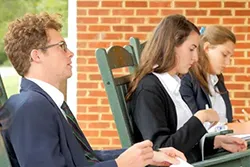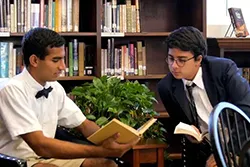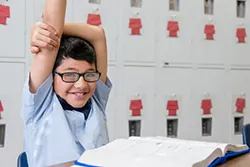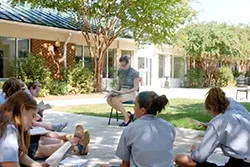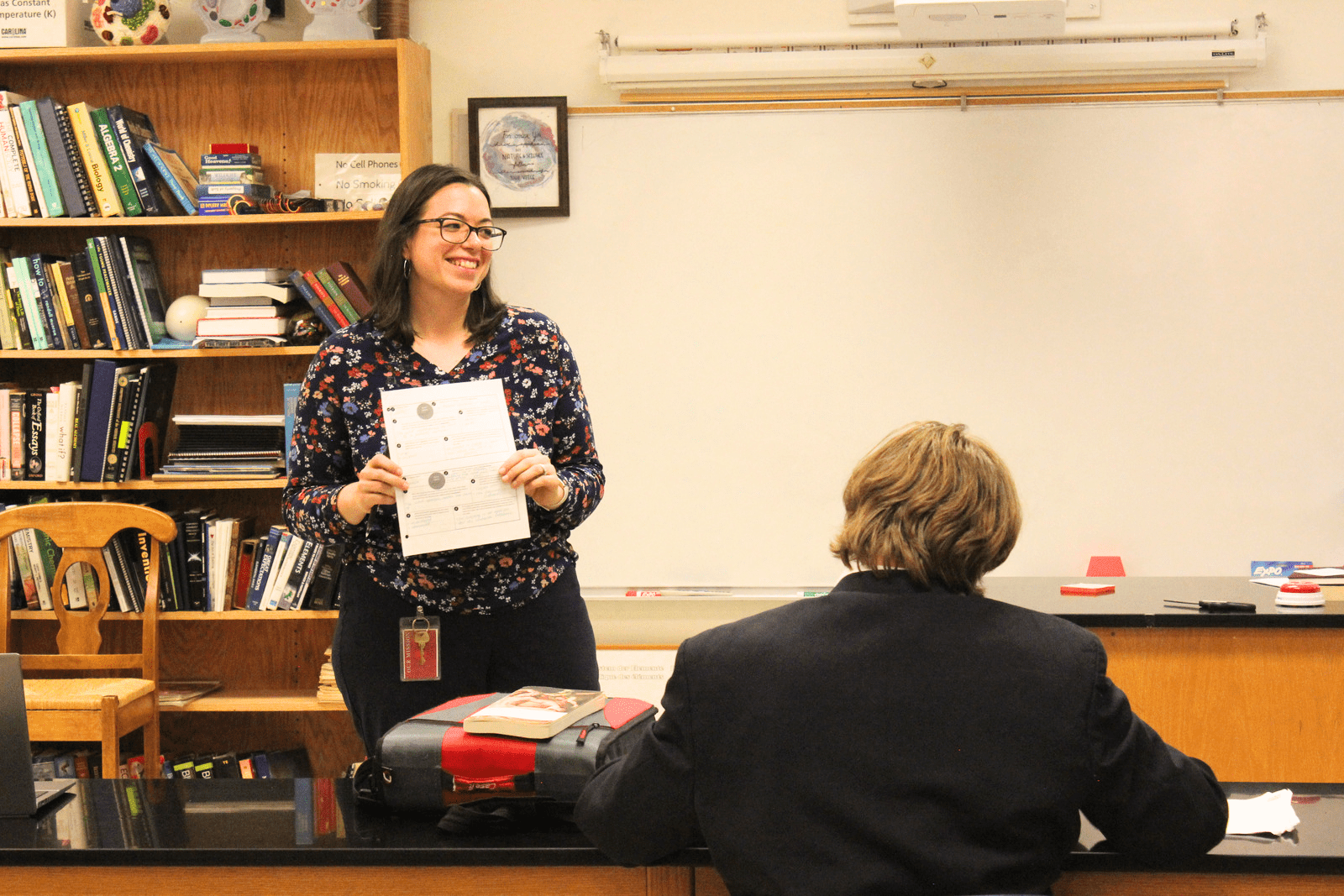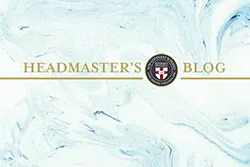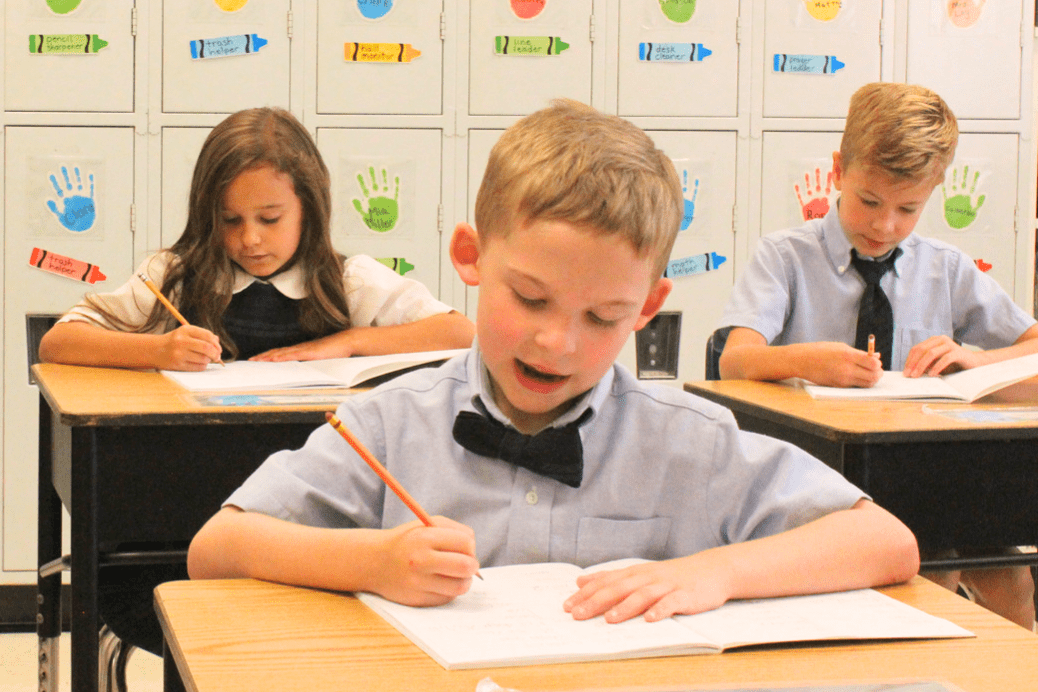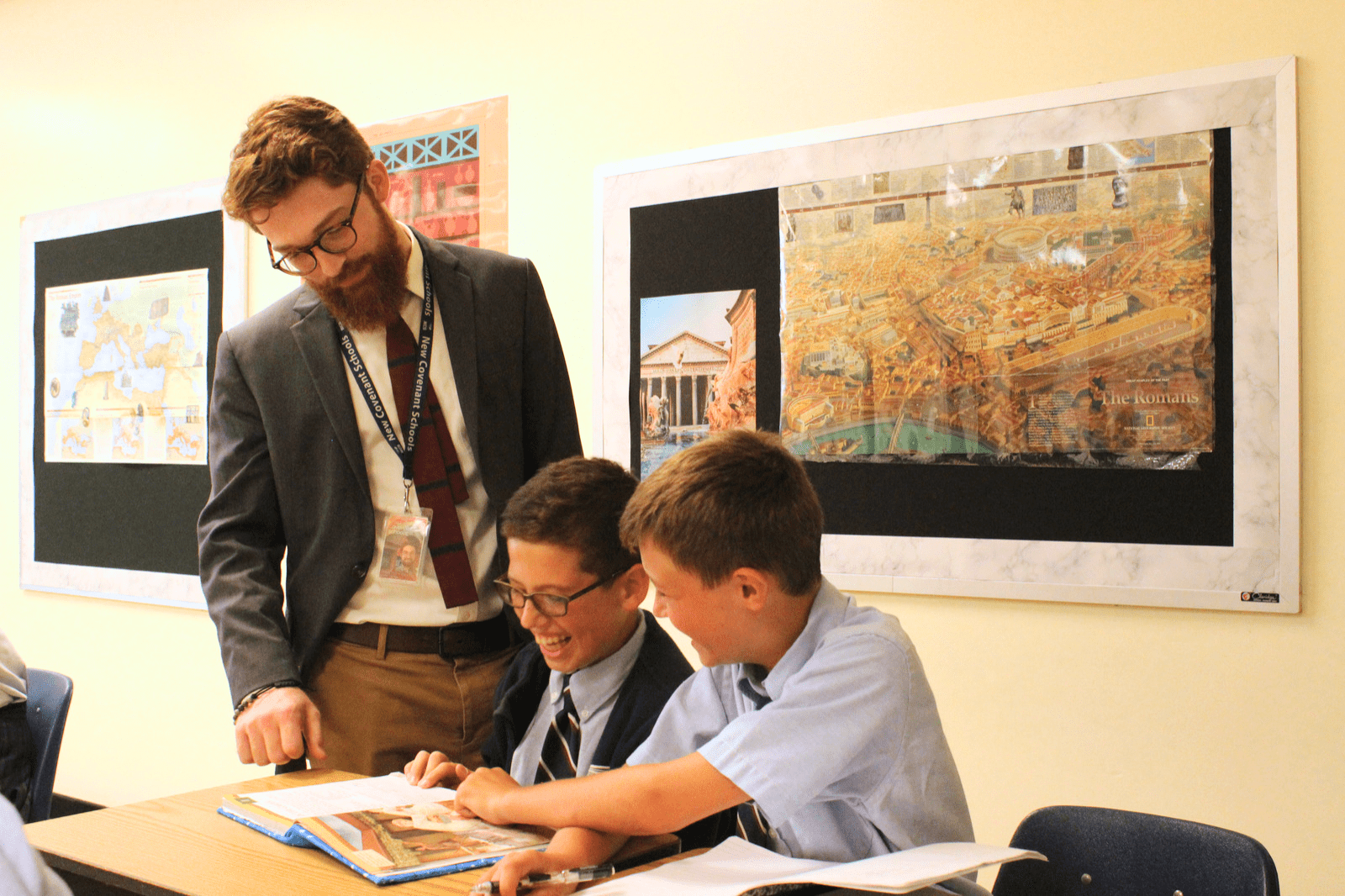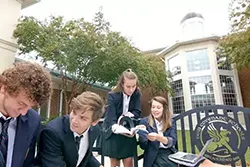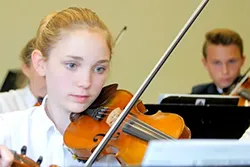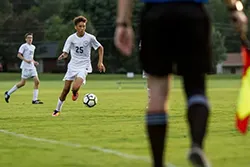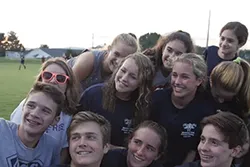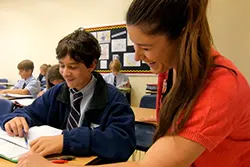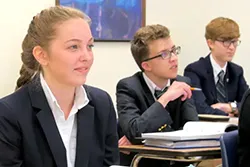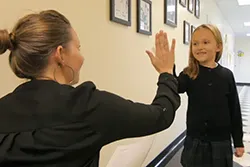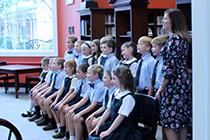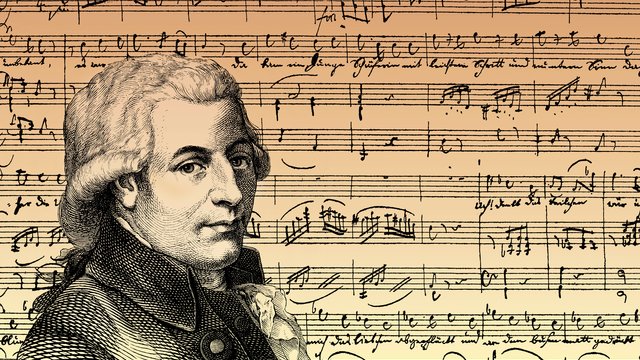In this edition of QUID NOVI we highlight the class of 2022. While you might be meeting them for the first time, we are preparing to say our goodbyes at a soon-coming graduation! Many of the members of this class started right here in kindergarten; others joined them along the way. Just yesterday—it seems —I was opening their car doors, greeting them as they scurried off into their kindergarten classes, and chuckling at their oversized backpacks. Their cuteness was mightily endearing, but as they’ve grown into young adulthood, that fondness has turned into deep and abiding affection. What they’ve become fills me with hope for the future. Together, they have spent years acquiring the necessary tools of learning to succeed wherever their paths take them.
Classical educators like us often find ourselves in the position of having to defend our approach. We are in a skills economy, we are told, and students must be prepared for global competition. Education must focus on skills . . . which is another way of saying nothing! Nobody knows what kind of world this class will inherit, and there is no way to impart the particular skills needed for what we don’t know. Anybody who got a computer science degree in 1987 has had to upgrade training more often than Microsoft releasing its next version of Windows!
Consciously or unconsciously, many have bought into the fallacy that raw talent can take the place of training, which is, of course, the foundation of a skill. Skill is nothing more than a trained practice, and, as the adage goes, “Practice makes perfect.” But the new rock-solid conviction is advanced anyway, along with its companion idea that children’s esteem must be built by continually telling them that they are great, as if nothing they produced needed much correction.
Both of these fallacies are supported with the familiar citations of musicians or artists, such as Mozart, whose talent, we would be led to believe, could be recognized as nearly mature at birth. Not only is this untrue, but even if it were, it would hardly be a fair standard against which average children should be measured. Mozart had an unbelievable ability to remember large swatches of notes, but at an early age he figured out how to put this innate ability to good use. It took him hours of practice to do it. He could sit down at a keyboard and perform for the average hearer an improvisation that seemed spontaneous. In reality he was merely linking up musical progressions he had spent hours committing to memory, much as the medieval minstrel could link up previously worked out literary couplets and epithets on the fly, tailoring them to a local audience to the amusement of all.
There are never any shortcuts, although some minds can take the curves faster. This explains the astonishing fact that when Mozart put his composition on paper, he made few corrections. His charts give the impression of simple genius minus work. What we have come to discover from Mozart’s letters, however, is that his work was done inside his very smart head, where he went over and over his scores repeatedly before he picked up a pencil.
Repeating an action again and again enables self-criticism. Educational experts in our day avoid repetitive learning as mind-numbing. Afraid of boring children, avid to present ever-different stimulation, the enlightened teacher is told to avoid routine. But in doing so they deprive children of the experience of studying their own ingrained practice and modulating it from within.
As the class of 2022 completes its work in just a few days, they will conclude a long regimen of study which included plenty of repetition and memory work, but it also imposed a year-over-year routine of study habits and practices upon which these students will be able to build. As their skill develops, the contents of what is repeated can change. Our seniors, for example, just completed their senior thesis presentations (see their titles on the Honoraria pages). None of them could have imagined this project as a Grammar School student, and many of them dreaded it as they concluded middle school and entered the School of Rhetoric. By the time Thesis Day arrived, however, they had been carefully “scaffolded” through a pedagogy that magnified their abilities, in some cases to their own surprise and delight. The project was concluded with palpable confidence, and their skill in presenting their topics was obvious.
Returning to Mozart, we know that at around age six or so, he was fascinated by the Neapolitan-sixth chord progression, moving, say, from C major to an A-flat major. After a few years of working with it, he became adept in inverting the shift to other positions. That is key. Mozart acquired skill with certain musical realities. Then he innovatively and successfully applied the skill in different ways. Few of our students begin with Mozart’s innate genius. All of them, however, can benefit from his methods, which entailed repetition and sustained attention to the mastery of information and technique. Once mastered, this could be put to higher use.
The class of 2022, like all students who sojourn through New Covenant, experience a pedagogy designed to provide the mind with facility to find and solve problems. When we talk about preparing students for a skills-based economy, there is nothing that will prepare them better than a classical, Christian education. Now that they have finished their course, we eagerly await to see their efforts come to fruition as they step out into young adulthood. Congratulations to the class of 2022.



